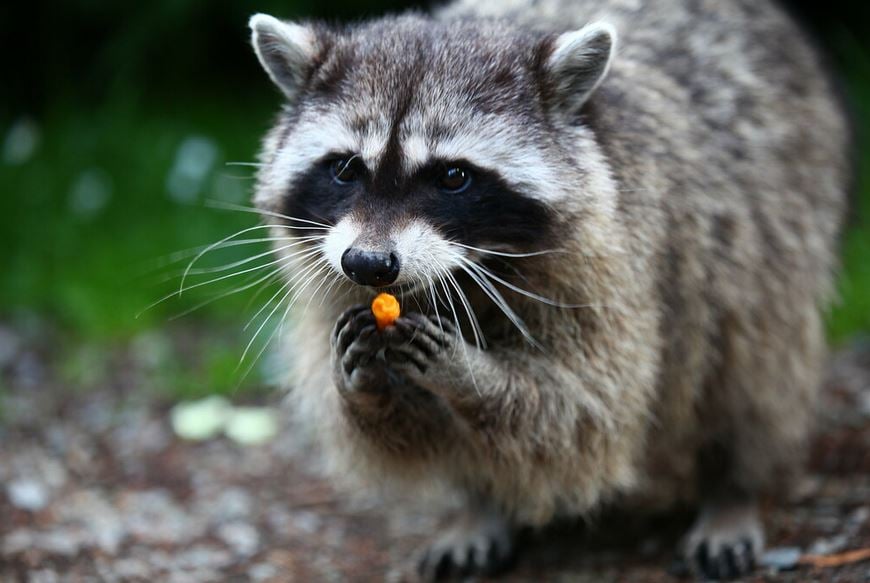Raccoons: Nocturnal Nuisances

Raccoons are nocturnal animals that are thriving thanks to increased human contact, as anyone with an unsecured dumpster or trash can will attest. Wild populations prefer areas with trees and water nearby. But more and more, they are found roaming city streets at night due to man's generosity in providing new sources of food, water and shelter.
In addition to garbage cans, raccoons are notorious for their love of sweet corn. These omnivores will also eat strawberries, tree fruits, peas, potatoes, melons, and grubs found in your lawn. They will dig holes in maturing melons and munch on ripening tree fruit. They make holes in lawns and mulch piles looking for insects to eat. Like squirrels, they also have been known to clean out bird feeders.
Prevention and Control
- To discourage raccoons from visiting your yard, stow water and food supplies, such as pet bowls and bird feeders, out of reach at night.
- Some homemade repellents that have used successfully are a dusting of baby powder or blood meal on vegetables and corn ears. (Of course you'll need to carefully wash any produce you intend to eat.) In a small garden, cover individual corn ears and melons with bags taped shut.
- On fruit trees, place baffles on tree trunks to prevent raccoons from climbing them. Prune overhanging limbs that raccoons can use to launch themselves into the fruit tree.
- Control grubs in your lawn and flower beds with beneficial nematodes or milky spore. A combination of the two is most effective.
- Raccoons can be scared temporarily by loud, intermittent noises or lights. Try using motion sensors that activate jets of water, noisemakers, or lights, but you may not get much sleep with the racket outside. It may be worth the short-term sacrifice so you can harvest your corn or melons.
- The best deterrent is a good fence. Raccoons are agile and smart, so build your fence well. For details, read Animal Fencing Techniques.
Print this Article:
Get the Dirt
Stay up to date on new articles and advice. Please fill out the information below.
